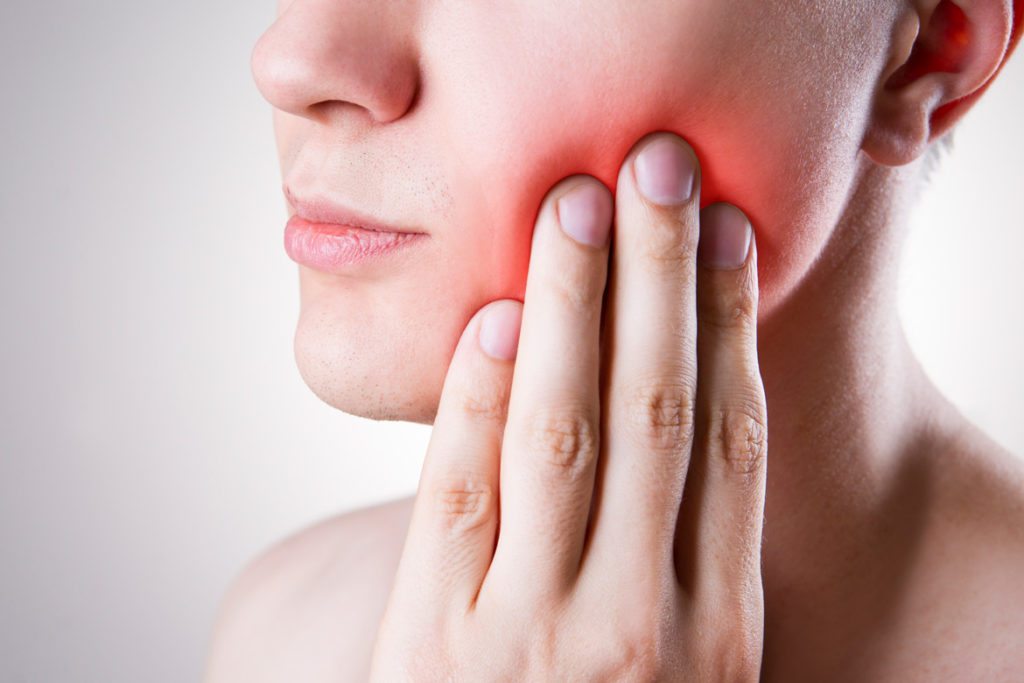Tooth pain can be excruciating, affecting your daily life and comfort. While it’s crucial to visit a dentist to address the root cause, there are several safe ways to manage tooth pain at home. This article will explore effective home remedies, over-the-counter solutions, and when it’s essential to seek professional dental care.
Understanding Tooth Pain: What Causes It?
Tooth pain can arise from various issues, such as:
1. Tooth Decay or Cavities
When bacteria in the mouth break down food particles, they create acids that erode the enamel, leading to cavities. These cavities can reach the tooth’s nerve, causing significant pain.
2. Gum Disease
Gum infections and inflammation, such as gingivitis or periodontitis, can lead to pain and discomfort around the teeth.
3. Cracked or Broken Teeth
Teeth can crack or break due to injury, grinding, or biting on hard objects. These cracks can expose the nerve and cause sharp, intense pain.
4. Abscessed Tooth
An abscess is a pocket of pus caused by a bacterial infection. It can cause severe pain and requires immediate professional treatment.
Safe Home Remedies for Managing Tooth Pain
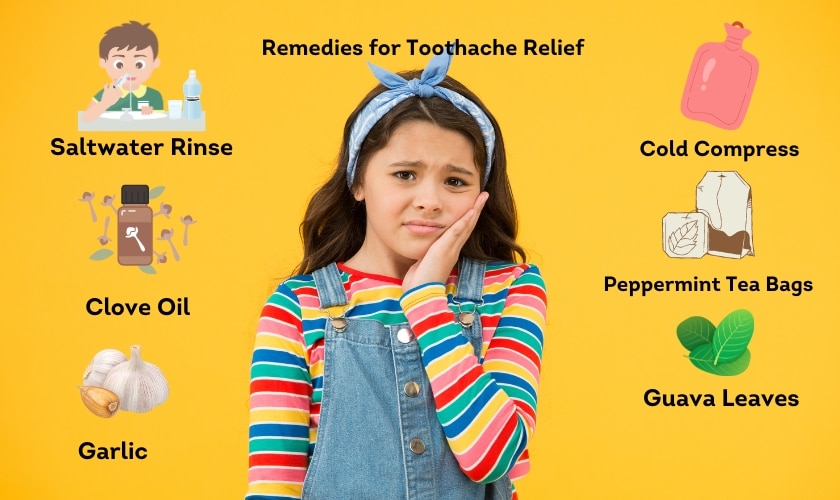
While these remedies can help alleviate pain temporarily, they are not a substitute for professional dental care:
1. Saltwater Rinse
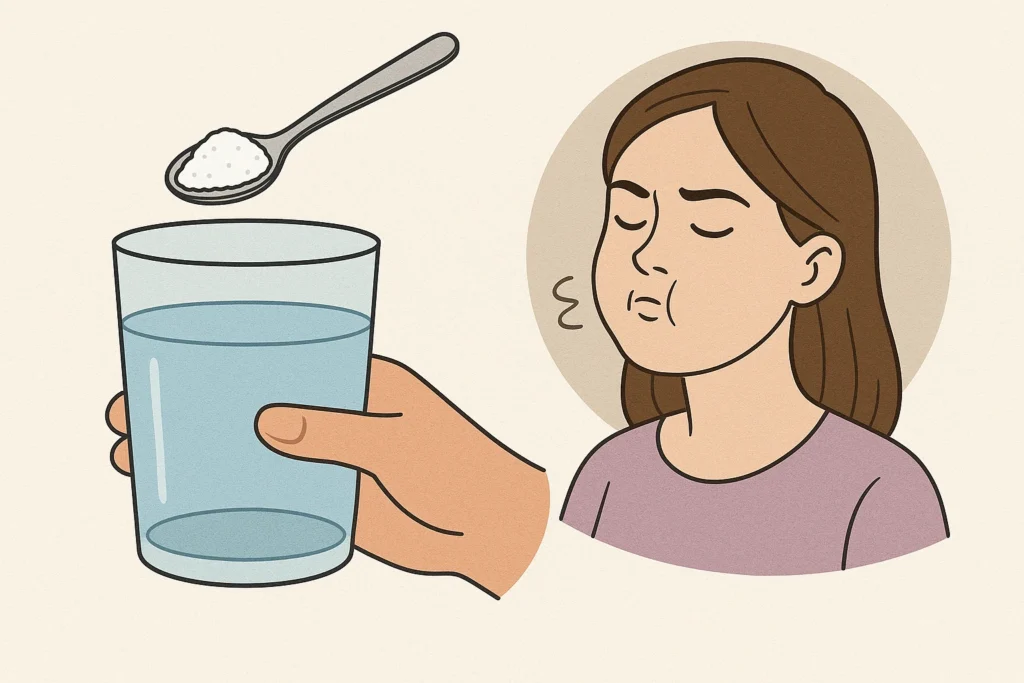
A saltwater rinse is one of the simplest and most effective natural remedies for oral pain. Salt acts as a natural disinfectant, helping to reduce bacteria in the mouth and soothe inflamed tissues. It also promotes healing in minor wounds, such as cuts, canker sores, or gum irritation.
How to use it: Dissolve half a teaspoon of salt in a glass of warm water. Swish the solution gently around your mouth for 30 seconds, making sure it reaches the affected area. Spit it out afterward—do not swallow. Repeat this 2–3 times a day, especially after meals, to keep your mouth clean and reduce discomfort.
2. Cold Compress
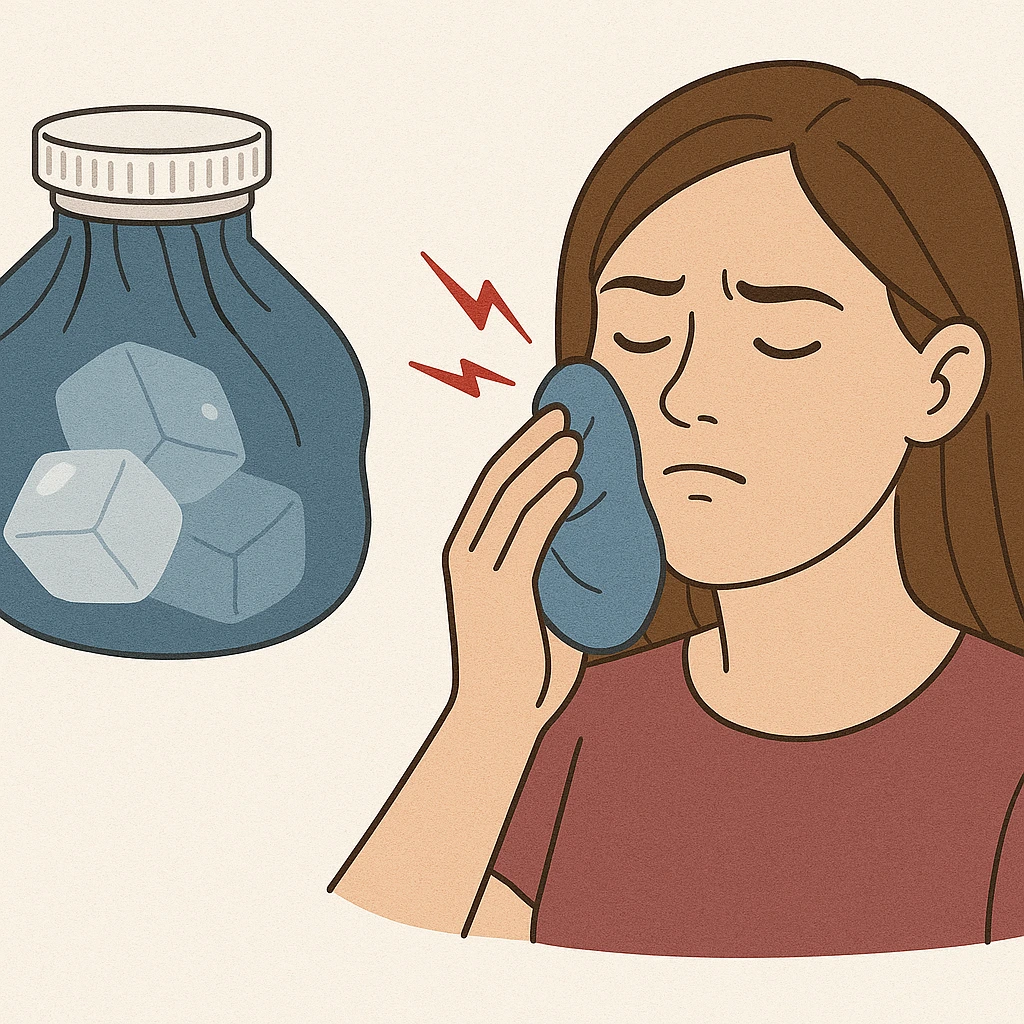
If your pain is caused by swelling from an injury, toothache, or dental procedure, a cold compress can offer quick relief. The cold temperature helps constrict blood vessels, which reduces inflammation and numbs the area, easing the pain temporarily.
How to use it: Wrap a few ice cubes in a clean cloth or use a commercially available cold pack. Apply it to the outside of your cheek on the painful side for 15–20 minutes at a time. Take breaks in between applications and repeat as needed throughout the day.
3. Clove Oil
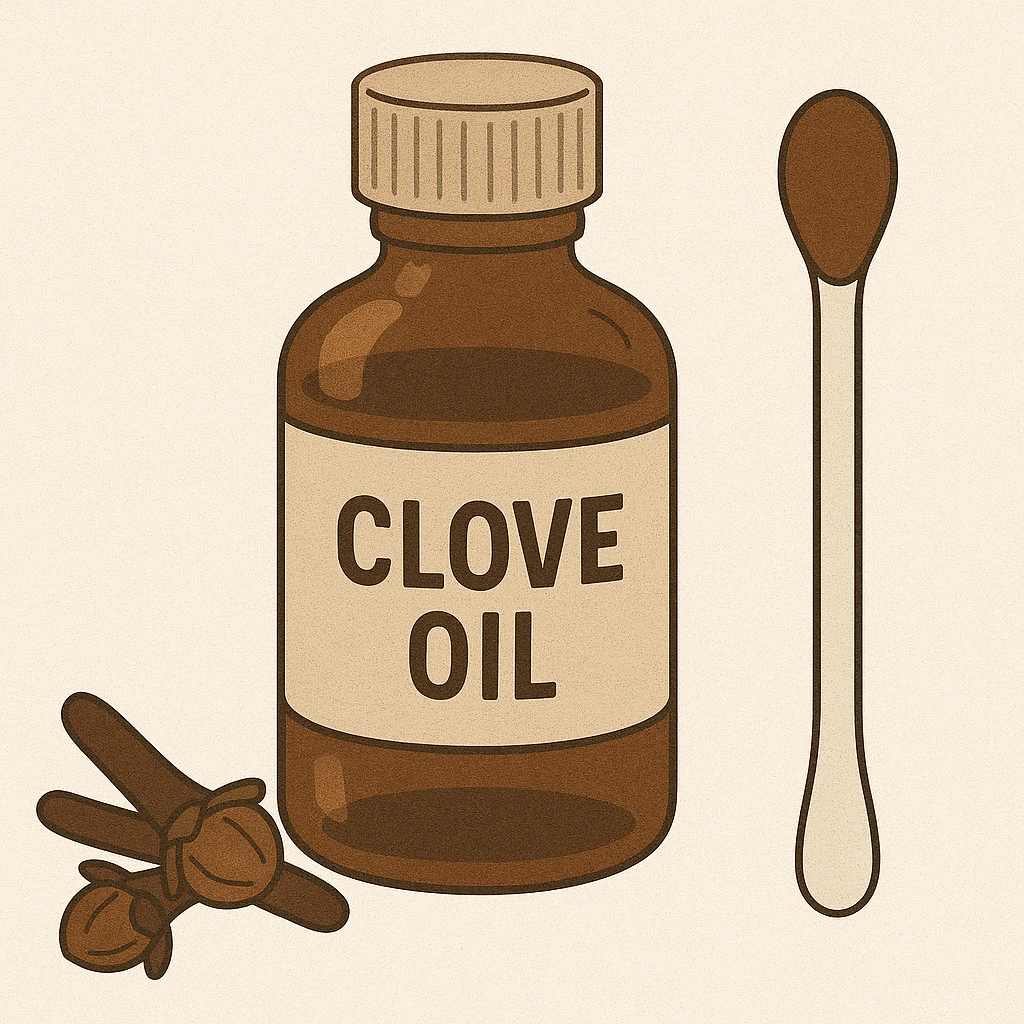
Clove oil has been used in dentistry for centuries due to its natural pain-relieving and antibacterial properties. Its active ingredient, eugenol, acts as a mild anesthetic, providing a numbing effect that can be especially helpful for toothaches or gum pain.
How to use it: Soak a small piece of cotton or a cotton swab in clove oil. Gently dab it on the affected area, avoiding swallowing the oil. You can also dilute the oil with a few drops of carrier oil (like olive oil) if you have sensitive gums. Apply 1–2 times a day as needed, but avoid overuse, as clove oil can be irritating in large amounts.
4. Over-the-Counter Pain Relievers
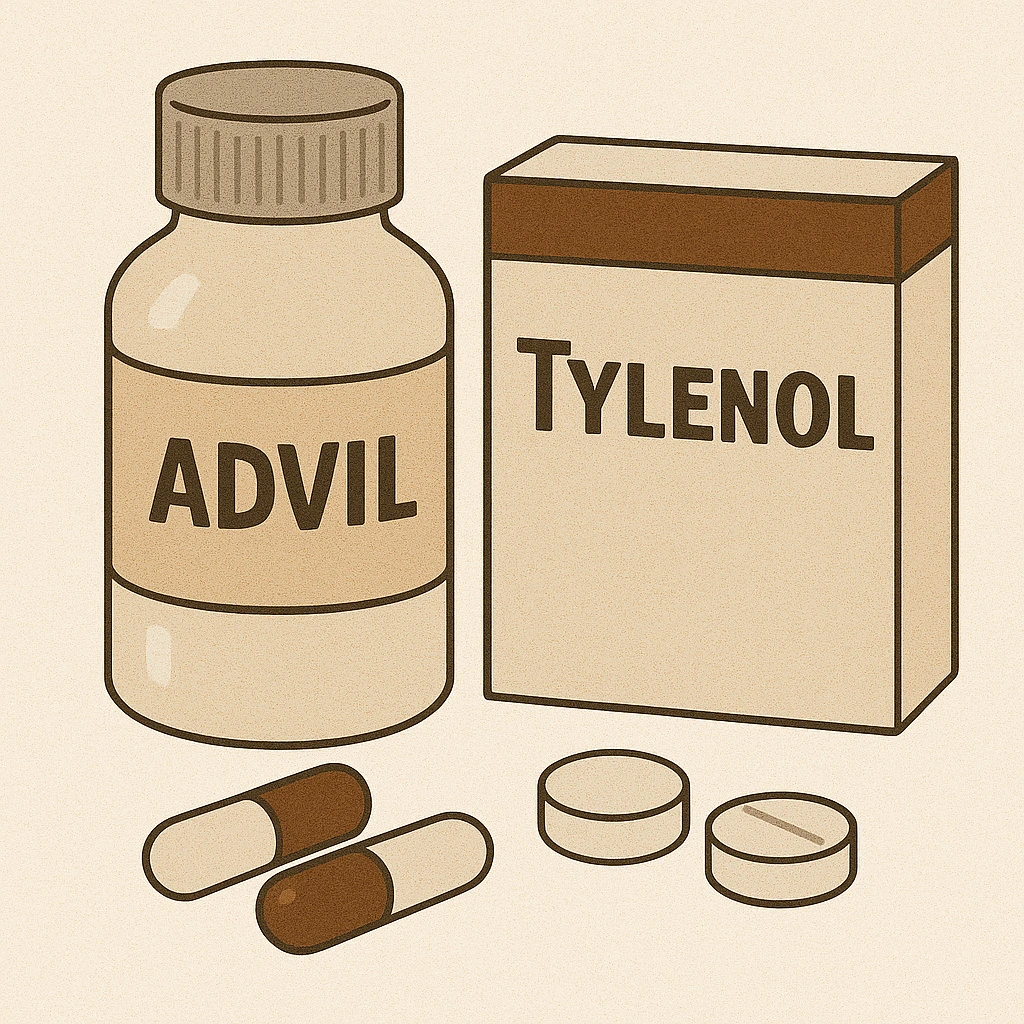
For more intense or persistent pain, over-the-counter (OTC) medications like ibuprofen (Advil) or acetaminophen (Tylenol) can provide effective relief. These medications reduce inflammation and block pain signals, making them useful for various types of oral discomfort, from dental procedures to sore gums or infections.
How to use it: Always follow the dosing instructions on the package. Do not exceed the recommended daily dose. If your pain persists for more than a few days despite medication, consult a healthcare provider, as there may be an underlying issue that needs attention.
5. Hydrogen Peroxide Rinse
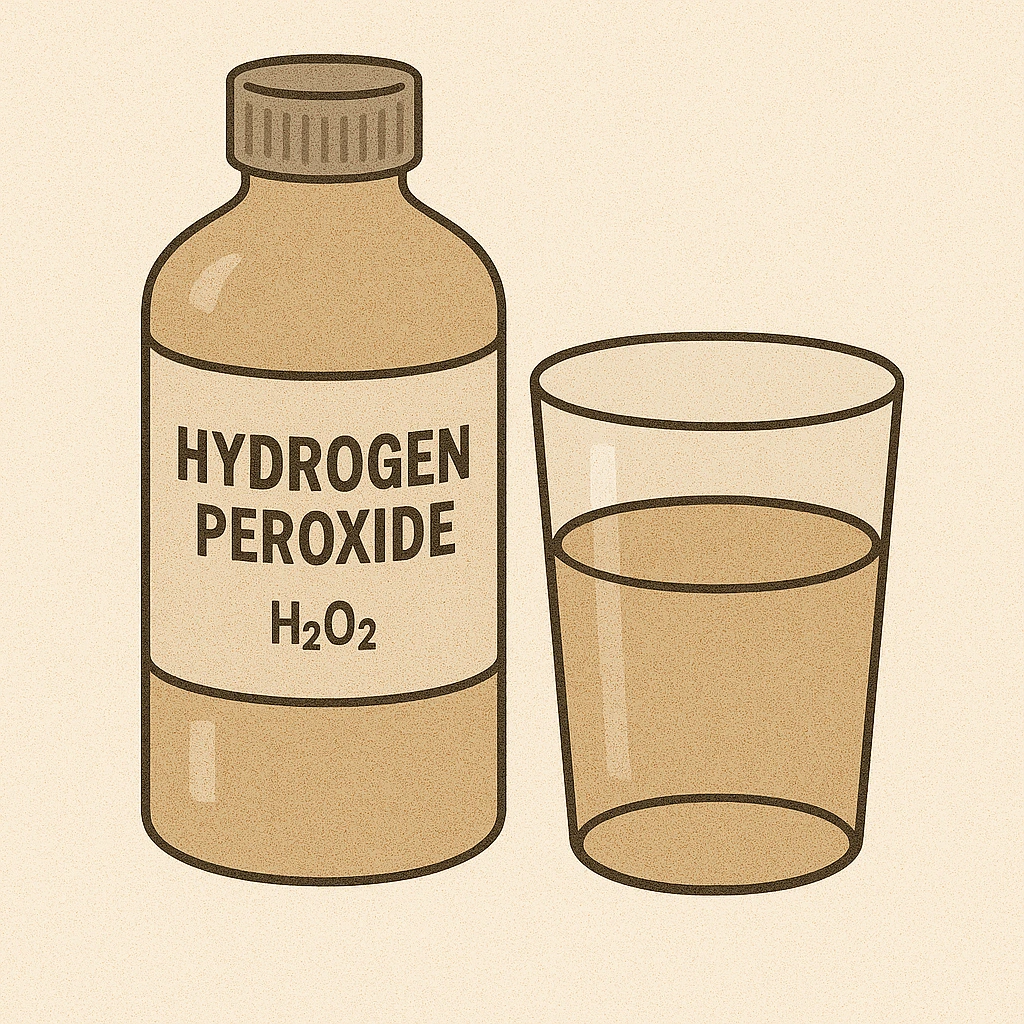
Hydrogen peroxide (H₂O₂) is a mild antiseptic that can help kill bacteria, loosen trapped debris, and reduce inflammation. A diluted rinse can be effective in soothing gum irritation, controlling plaque, and improving oral hygiene when used correctly.
How to use it: Mix equal parts of 3% hydrogen peroxide and water. Swish the solution around your mouth for about 30 seconds, ensuring you do not swallow any of it. Spit it out and rinse your mouth thoroughly with plain water afterward. Use this rinse once a day, and avoid prolonged use, as hydrogen peroxide can irritate the oral mucosa if overused.
When to Seek Professional Help for Tooth Pain
Home remedies can help temporarily manage tooth pain, but certain situations require immediate professional care:
1. Persistent Pain
If tooth pain persists for more than two days despite using home remedies, it’s time to consult a dentist.
2. Swelling or Fever
Swelling in the gums, face, or a fever may indicate a severe infection that needs professional treatment.
3. Signs of an Abscess
Symptoms like severe, throbbing pain, a foul taste in the mouth, swollen glands, or difficulty swallowing could indicate an abscessed tooth, which requires urgent dental care.
4. Broken or Knocked-Out Tooth
If you have a cracked, broken, or knocked-out tooth, visit a dentist immediately to prevent further complications.
Why You Should Avoid Trying to Kill a Tooth Nerve at Home
Attempting to kill a tooth nerve at home is highly dangerous and can lead to severe complications, such as:
- Infections: Without proper sterilization and professional techniques, you could introduce bacteria into the tooth, leading to an abscess or a more serious infection.
- Permanent Damage: You could cause irreversible damage to your gums, jawbone, or surrounding teeth.
- Increased Pain: Incorrect methods can exacerbate pain rather than relieve it.
Conclusion: Managing Tooth Pain Safely at Home
While it’s possible to manage tooth pain temporarily with safe home remedies like saltwater rinses, cold compresses, or clove oil, it’s crucial to understand that these methods are only temporary solutions. For persistent or severe pain, swelling, or signs of infection, seeking professional dental care is essential to avoid serious complications and ensure proper treatment. Remember, your oral health is vital to your overall well-being—don’t risk it by attempting unsafe home procedures.
Disclaimer: The content on Wellness Derive is for informational purposes only and not a substitute for professional medical advice, diagnosis, or treatment. Always consult a healthcare provider for medical concerns.

